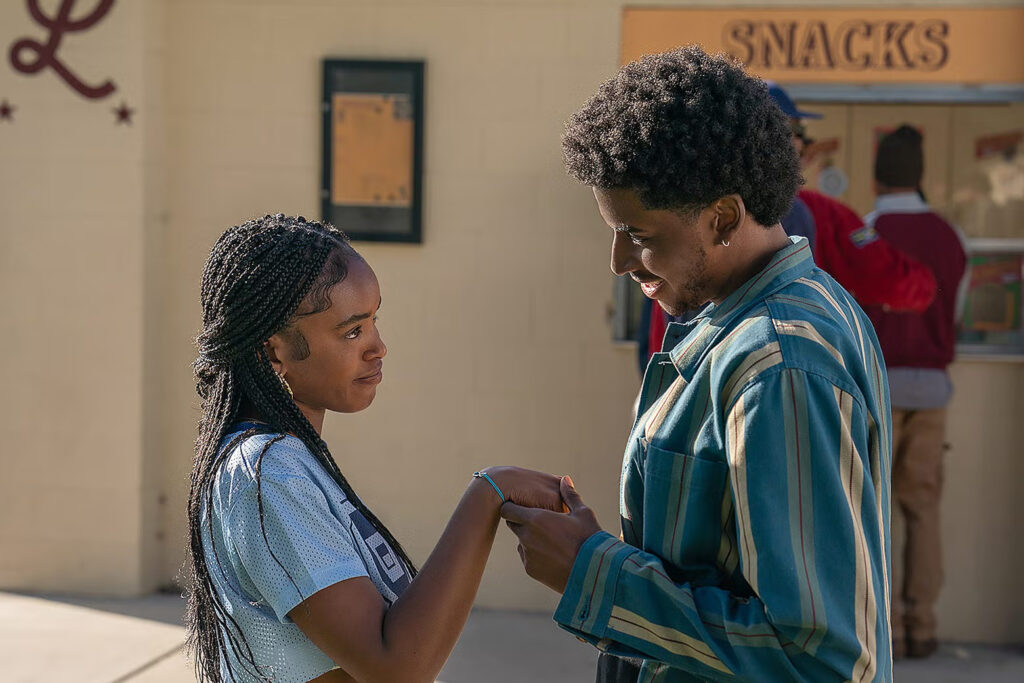Sex with friends is an increasingly common phenomenon in the modern world—a subject filled with curiosity, hope, awkwardness, and sometimes regret. Whether by accident or design, many people find themselves considering or experiencing physical intimacy with friends. This guide explores the layered realities of sex with my friends: what it means, why it happens, how to keep the friendship alive—or exit gracefully—and the best practices for making informed, healthy choices.
Target keywords woven naturally throughout: sex with my friends, friends sex, sexual friendship, sex friendship, intimacy in friendship, friend with sex, sex between friends, best friends have sex, sex in friendship.
Table of Contents
-
Understanding Sex with Friends
-
Why Do Friends End Up Having Sex?
-
The Emotional Landscape: Chemistry, Curiosity, and Risk
-
Top Benefits of Sex with Friends
-
Real Risks and Downsides
-
Essential Ground Rules for Navigating Sex in Friendship
-
Communicating and Safeguarding Emotional Health
-
What Science and Experts Say
-
Stories: What Happens After Sex with Friends?
-
A Trusted, High-Authority Resource
-
Conclusion
1. Understanding Sex with Friends
Having sex with my friends isn’t just about crossing a line one drunken night. For many, it’s a recurring reality—sometimes a “friends with benefits” situation; sometimes a one-off encounter born from closeness, attraction, or loneliness. The defining quality is trust and history: these are not strangers but people you already care about.
What Counts as Sex with Friends?
-
Spontaneous, one-time experiences
-
Ongoing sexual friendships (friends with benefits)
-
Experimentation during transitions (post-breakup, loneliness, etc.)
-
Best friends exploring chemistry or curiosity
2. Why Do Friends End Up Having Sex?
Several core factors explain this trend:
-
Emotional trust: Friends offer safety and comfort, making intimacy less intimidating.
-
Chemistry: Physical attraction can develop naturally over time.
-
Loneliness or major life changes: Vulnerability during big transitions can lead to deeper connection.
-
Curiosity: What if there’s something more beneath the friendship?
-
Convenience: No need for awkward dates or “getting to know” phase.
3. The Emotional Landscape: Chemistry, Curiosity, and Risk
Sex between friends often emerges in situations of extra closeness or vulnerability. Maybe you and your friend spend late nights together, navigating life’s challenges—eventually, attraction or physical need breaks through. Alcohol, parties, or intense conversations can also play a role.
Psychology of Attraction in Friendship
-
Mutual respect increases both comfort and desire.
-
Intimacy in friendship means fewer inhibitions and a willingness to explore.
-
Shared secrets and experiences can deepen emotional bonds, fueling sexual curiosity.
4. Top Benefits of Sex with Friends
| Benefit | Description |
|---|---|
| Comfort and safety | You already know each other’s limits and triggers. |
| Open communication | Friends often discuss boundaries and desires more honestly. |
| Sexual experimentation | Familiarity fosters playfulness and supports new experiences. |
| Fulfillment without romance | Achieves warmth and intimacy without dating stress. |
| Emotional support | Sex is often accompanied by genuine care and empathy. |
| Flexibility | Having a sexual friendship can change or end more simply than romance. |
Most importantly, some people actually report that sex with my friends made their friendship stronger by deepening their trust and understanding—when both are honest about expectations.
5. Real Risks and Downsides
Despite the upsides, risks are real and sometimes permanent:
-
Unbalanced emotions: One friend falls for the other; heartbreak ensues.
-
Awkwardness: Group dynamics or future one-on-one time becomes uncomfortable.
-
Jealousy: New romantic partners can cause tension, insecurity, or competition.
-
Permanent friendship loss: If intentions are unspoken, the friendship can end abruptly.
-
Stigma and gossip: Particularly in close social circles or traditional cultures.
-
Health risks: Even with trust, it’s crucial to prioritize safe sex practices at all times.
Science on Friendship Risk
A widely cited study found that 76% of people who had sex with a friend said their relationship either improved or remained unchanged—but 24% reported harm, mostly stemming from unspoken feelings or mismatched intentions.

6. Essential Ground Rules for Navigating Sex in Friendship
Your approach can mean the difference between a stronger bond or losing a valued friend.
Key Ground Rules
-
Communicate Openly
Discuss desires, boundaries, and emotional expectations before sex happens—or as soon after as possible. -
Set Boundaries
Define if it’s a one-time thing, an ongoing arrangement, or just an experiment. -
Respect Each Other’s Feelings
Check in regularly. If emotions change or one person is uncomfortable, hit pause. -
Practice Safe Sex
Trust doesn’t replace sexual health; always use protection and discuss histories. -
Agree on Privacy
Decide together how much you’ll share with others about your dynamic. -
Plan the Exit Strategy
Know how you’ll return to just friendship—or gracefully take time apart if needed.
7. Communicating and Safeguarding Emotional Health
Communication is repeatedly shown to be the most important factor for survival—sex itself rarely “ruins” the friendship. The drama usually arises from unexpressed feelings, unclear agreements, or mismatched visions for the friendship’s future.
How to Talk About It
-
Be honest, direct, and humble about what you want and what scares you.
-
Don’t avoid awkward conversations—face them early and often.
-
Respect the other person’s boundaries and needs.
-
Check in after sex: Are both of you still happy with the choice?
8. What Science and Experts Say
Research confirms that sex between friends can work—sometimes well, sometimes not. Success is determined by transparency, consistent communication, and aligned intentions.
-
Lack of spoken expectations before sex is the greatest predictor of pain or loss.
-
“You can minimize the drama by making sure that you and your friend talk about it ahead of time. You may not feel like talking … but in my experience, it works out a whole lot better than two friends who … get super drunk and fall into bed together”.
9. Stories: What Happens After Sex with Friends?
Positive Experience
“I was worried sex would ruin our friendship, but after some honest, awkward talks, we actually became closer. It didn’t turn romantic, and now we joke about it—we both know our boundaries.”
Negative Experience
“We hooked up after a party, hoping it could be just sex. But I caught feelings, and he didn’t. Avoiding the conversation made it worse—we lost the friendship instead of saving it.”
Surprising Outcomes
-
Some friends grow distant, but reconnect later with more self-awareness.
-
Others end up in relationships—sometimes even marriage—after exploring intimacy.
-
For most, though, it’s the clarity before and after—not the sex itself—that sets the tone for survival or loss.
10. A Trusted, High-Authority Resource
For further expert analysis, guidance on boundaries, sexual health, and sustaining friendship through intimacy, see Planned Parenthood’s comprehensive guide to sex and friendship. As a globally recognized authority, their insights are grounded in research and give practical, judgment-free advice.
Read More: Sex with Friends: Honest Truths, Best Practices, and Emotional Realities
11. Conclusion
Sex with my friends is neither doomed nor destined for disaster—its outcomes depend on clear intentions, honest dialogue, emotional self-awareness, and mature boundaries. It can lead to deeper trust, lasting connection, or powerful lessons about vulnerability and desire. It can also bring hurt, regret, or loss—particularly when fear or uncertainty keep friends from talking openly and directly.
If you find yourself in this territory, the best guide is honesty: with yourself and with your friend. Whatever outcome, you’ll have acted with respect for both connection and care.







[…] Read More: Sex with Friends: Navigating Boundaries, Risks, and Real Connection […]
[…] Read More: Sex with Friends: Navigating Boundaries, Risks, and Real Connection […]